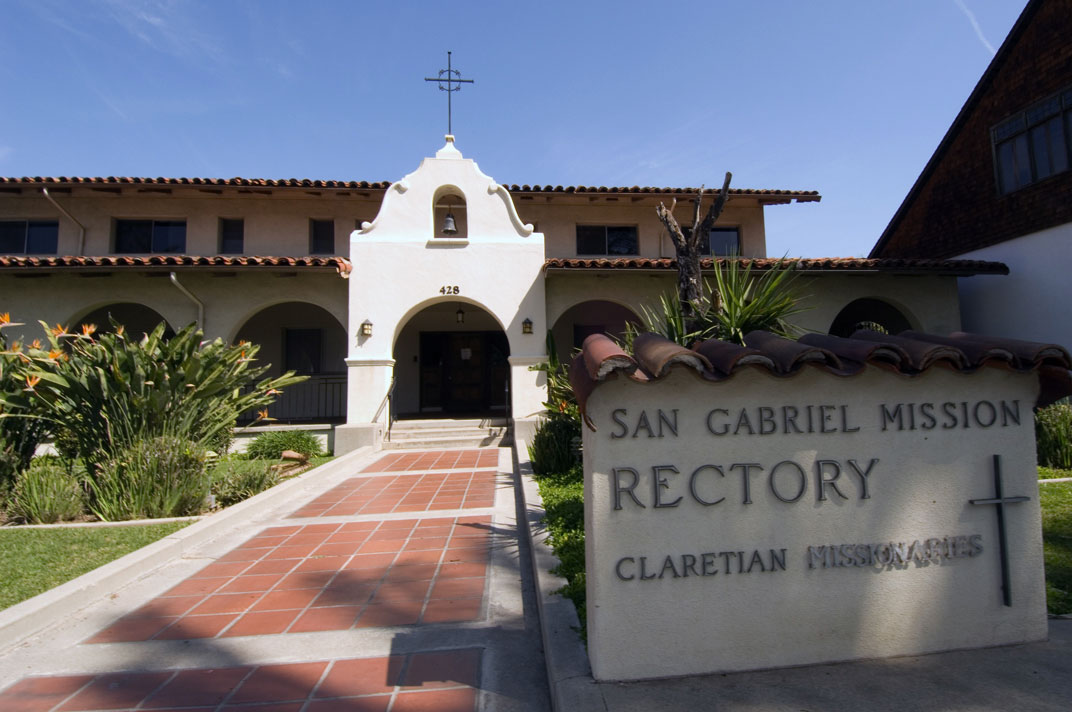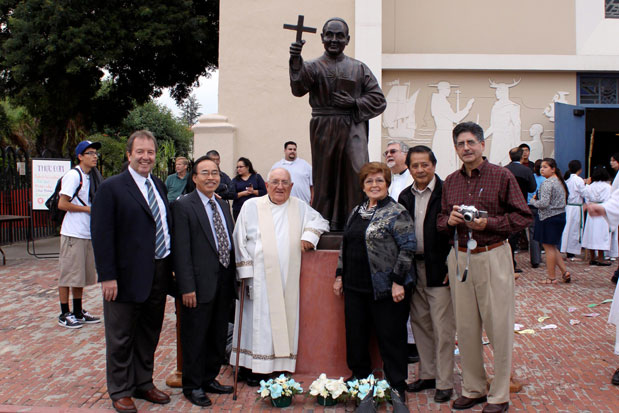Claretians in Los Angeles: Inspired in Ministry
 |
|
The front facade of the historic San Gabriel Mission |
The city of Los Angeles has a deep Catholic history, one that the Claretians have been a part of for more than 100 years. Claretian ministries in Los Angeles respond to the many needs of their communities in creative, practical ways that reflect the mission of the congregation. Here is an introduction to some of the Claretians in Los Angeles and the effective work they do to share in the lives of those they live among and minister to.
- The Claretian Parish of Our Lady Queen of Angels, known as “La Placita,” is located in the heart of the city center and plays a significant role in the history of Los Angeles. Claretian Father Richard Estrada works with city planners in preserving this historic part of downtown Los Angeles and in making visitors aware of the history of the parish. The Claretians recently celebrated the centennial of their presence at La Placita.
- Claretian Father Richard Estrada is helping homeless young men in L.A. get a fresh start in life with housing and vocational training through the organizations of the Kolping Society and Jovenes, Inc.
- Engaged couples throughout Southern California enjoy spiritual guidance and marriage preparation with Claretian Father Mark Clarke, who is very much in demand as the priest for the Engaged Encounter Movement of Southern California.
- Ministering to Catholic youth has always been a particular focus for Claretians throughout the United States. Claretian Father Paul Keller, a former teacher and campus minister at L.A. archdiocesan Alemany High School in San Fernando Valley, continues to hold a regular Sunday evening Mass on campus for the young adult graduates of the school and for families that otherwise tend to drop out of the church community.
- Los Angeles, like many communities throughout the country, does not have enough priests to staff its many parishes city-wide. Claretian Fathers Paulson Veliyannor and Paul Keller also serve as priests in three of the parishes in Los Angeles that have no priests in-house: St. Marcellinus, St. Agatha, and St. Stephen of Hungary.
 |
|
On the Feast of St. Anthony Claret last year, |
